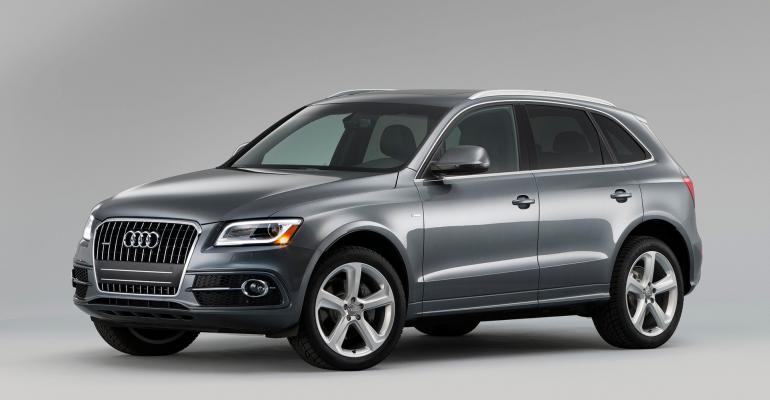The Volkswagen scandal over rigged diesel-emission testing finally has exploded in South Korea, where nationalist emotions among a majority of car owners and government officials run high.
The National Assembly has called Thomas Kuehl, CEO of Audi Volkswagen Korea, to give testimony before a Parliamentary audit session that will look into vehicle-emission matters this week. The so-called “audit sessions” are usually rough, with no holds barred in questioning by Korean lawmakers from all political parties.
Audi Volkswagen also has submitted a document to the government acknowledging 121,038 vehicles equipped with the defeat device have been sold in Korea since 2009.
Of the total, 92,247 were VW-brand vehicles, including the Golf compact car and Tiguan CUV. The other 28,791 units were Audis, including the A4 and A5.
On Oct. 1, Korea’s Ministry of the Environment began testing selected VW and Audi vehicles certified as meeting Euro 6 standards. The Ministry also is testing Tiguans that are certified to Euro 5 standards.
The emission testing is taking place at the National Institute of Environmental Research, in Incheon. The vehicles are being subjected to intensive lab and road testing.
The Ministry confiscated the vehicles at the import staging area in Pyongtaek, south of Seoul, and shipped them sealed and under security to the Incheon laboratory.
Ministry officials have told Korean media that if the tests prove Audi and VW have sold vehicles that do not meet their stated emissions, it may ban the sale of all of those vehicles in Korea.
Ministry officials also say if the test results warrant it, they may cancel their emission certifications, making it impossible to import the vehicles into Korea.
The Ministry also could impose a fine, but under current EU-Korea FTA language, Korea limits the amount of such fines to 1 billion won ($850,000) for the entire model lineup. At the present time it is not possible to levy a fine for every one of the vehicles, but some legislators are saying they can quickly change that.
A couple of owners already have filed lawsuits against Audi and VW.
The law firm representing them, Barun Law, claims that since the two lawsuits were filed on Sept. 30, some 500 owners of Audis or VWs have begun processing lawsuits with the firm. Of the total, 100 have completed the necessary documentation, a spokesman says. He anticipates about 1,000 owners will have begun lawsuits with his firm by the end of the week.
The actions of VW and its officials in Korea constitute a criminal offense, punishable by up to seven years in prison, the Barun spokesman says, although the plaintiff’s lawsuits are civil actions.
He says all plaintiffs will demand a full refund of the vehicle purchase price. In the two lawsuits already filed the plaintiffs also seek a refund of the interest payments made under their purchase contacts and personal damages of 30 million won ($26,000).
The Barun spokesman notes other law firms are also receiving applications for lawsuits against Audi Volkswagen Korea.
In Korea there are no class-action lawsuits and each plaintiff must file separately. The law firm says it may ask the court to permit it to file several complaints in a class action style if more plaintiffs join in the action.
One Korean lawmaker says he is holding a Ministry of the Environment report that states that VW was ordered in January 2014 to recall Tiguans sold in 2009 because of malfunctioning emissions sensors.
VW apparently ignored the order, and at the time laws were not in place to enable the Ministry to enforce it.
The Ministry now is suspicious VW did not make the recall out of concerns that it could expose the emissions sensor defeat device, which since September has become a global scandal. It also now is armed with a law that permits it to enforce its recall orders.
Meanwhile, neither Hyundai nor Kia will comment on whether the VW scandal could help their sales. Both companies have been affected by the steady surge in competition from VW and the other German automakers for more than two years. It was the subject of an address to his officials in January by Hyundai Motor Group Chairman Chung Mong-koo.
According to the Korean Automobile Importers and Distributors Assn., Germany’s four major brands, Audi, BMW, Mercedes-Benz, Porsche and Volkswagen, accounted for combined sales of 98,750 vehicles in the first eight months of 2015, to hold 62% of Korea’s import market.
Of those sales numbers, Audi sold 19,972 vehicles for a 12.8% import market share and VW delivered 24,778 vehicles for a 15.6% share.
The German-import total represents less than 10% of new-vehicle sales in Korea.





